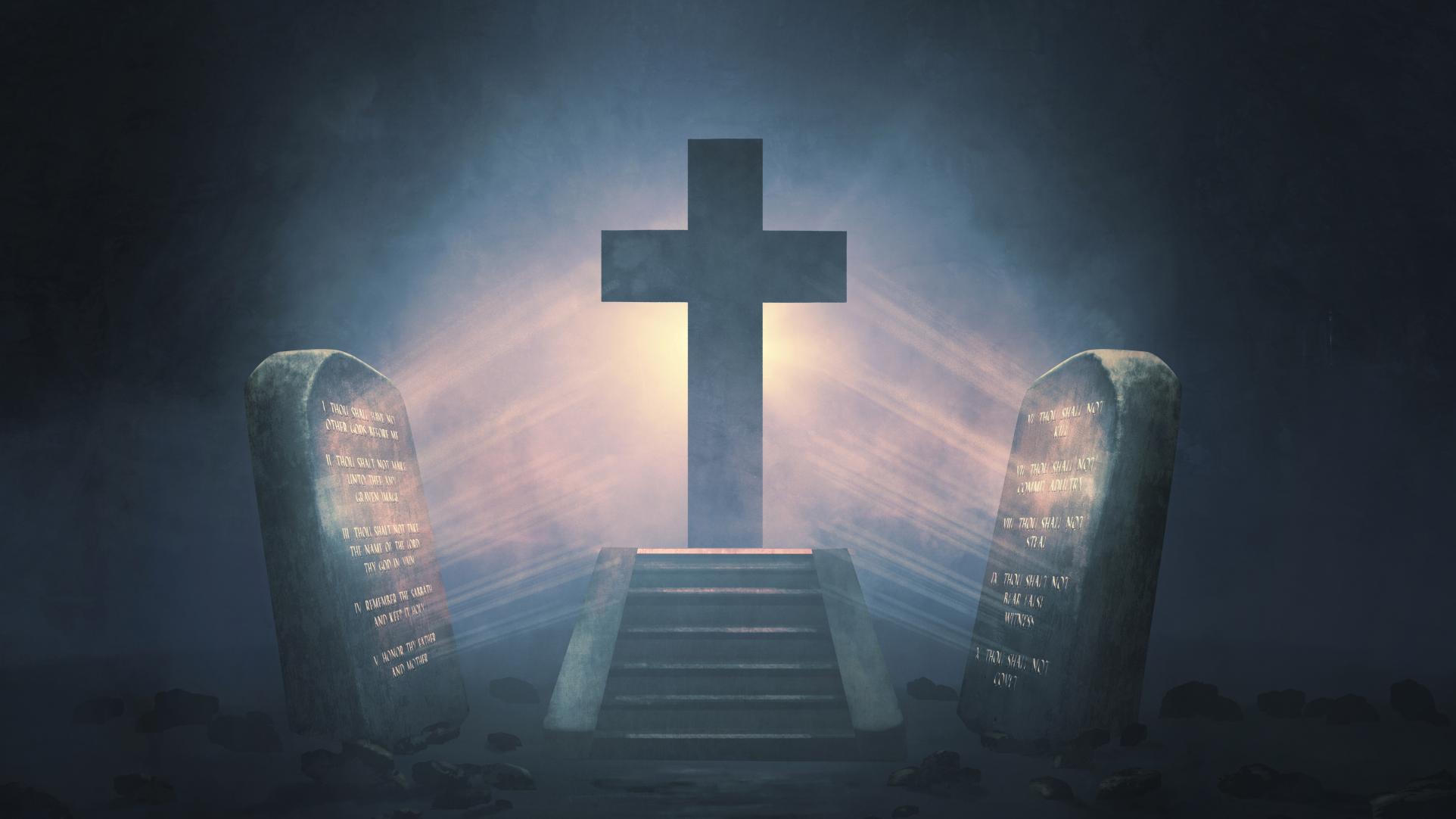"And you shall remember the whole way that the LORD your God has led you these forty years in the wilderness, that he might humble you, testing you to know what was in your heart, whether you would keep his commandments or not."
Deuteronomy 8:2 ESV
When Jesus met the devil's first temptation with the words of Deuteronomy 8:3, He may have also revealed why He ventured into the wilderness in the first place. In the verse before, Deuteronomy 8:2, Moses tells the Children of Israel that God sent them into the desert "that he might humble you, testing you to know what was in your heart, whether you would keep his commandments or not" (ESV). Jesus's experience in the desert was the same, a time of testing to know what was in His heart and whether He would obey God's commands. He couldn't test Himself for forty years, but He could for forty days. Would the grumbling in His stomach become a grumbling spirit? Would He long so much for a full belly that He would return to the land of slavery? Satan thought so, but when Christ rebuffed the temptation to make bread, He declared His loyalty not to His physical needs, but to the Word of God. Such devotion to Scripture is uncommon, but perhaps we can understand a little better by taking a look at the longest psalm, a psalm that has been called a love song to the Law.
Psalm 119 is a 176-verse acrostic of the Hebrew alphabet that's traditionally attributed to David, and its focus is God's Law. It contains eight synonyms variously translated "law," "commandment," "statute," "decree," "precept," and "judgment," including at least one such term in almost every verse. This Psalm is a challenging prayer, both because of its length and its candid assessment of life in obedience to God, a life full of blessings but also great difficulties. Ultimately, however, the psalmist's loyalty is clear. Despite slander and persecution, he loves the Law.
Such a perspective is unusual for Christians today. Many celebrate Colossians 2:14’s statement that God’s ordinances have been done away with, nailed to the cross. Even Christians who revere the Ten Commandments rarely compose marathon poems glorying in God’s Law. Yet the author of Psalm 119 does exactly that, reveling not only in the Ten Commandments, but even the harsher portions of the Law. In fact, the word translated “law” is torah, a word that traditionally refers to the first five books of the Old Testament and contains the entire moral, ceremonial, and civil commands handed down to the Children of Israel. The author of Psalm 119 loves it all without distinction. That may be a difficult perspective to understand today, but we can gain some insight by examining, in broad strokes, the sorts of things he says about God’s Law.
Early in the psalm, the author longs for the Law, and he misses it when it is absent. He feels that following the Law is like having great riches (v. 14). He calls God's rules his counselors (v. 24). The Law grants freedom (v. 45) and comfort (v. 52). At night he sings about them (v. 54) and gives thanks for them (v. 62). Throughout Psalm 119, the author calls God's Law lovable, righteous, and eternal. Obedience usually invites persecution from the wicked and arrogant, and many things about God's commands are difficult to understand, but the author’s conclusion is clear: the Law is delightful.
If these claims feel strange to us, it may be because we do not see what the writer of Psalm 119 sees, that the Law is a reflection of its Author. The attributes of the Law that the psalmist sings about could also be sung about God Himself: He is lovable, righteous, eternal, granting us freedom and comfort, counseling us, and sometimes He is difficult to understand. Living for God often triggers persecution, but in the end a life with God is worth more than great riches. The Law is an expression of its Maker.
God's Law Is the Promise of Who He Is.
The Law is the promise — the most important promise in all of Scripture. It is the promise of who God is. The decrees, statutes, commandments, precepts, and judgments handed down from Sinai are a foretaste of the infinite God with whom we will spend eternity. What that Law is like, He is like. We cannot experience God face-to-face on this earth, but we can experience His law, and our relationship with it reflects our relationship with Him. If we run from the Law here, we will run from God when He is revealed. If we merely endure the Law, we will do no more than endure the presence of God Himself. But if we can love the Law, we will love its Maker. Psalm 119 and the whole of the Torah give us that promise. The Law does not save us — it shows us if we want to be saved. God's Law is the promise of who He is.
Jesus understood that devotion to God's Word was means to an end. He rebuffed the first temptation by stating that He lived by God's Word, but at the climax of the devil's attempts, Jesus declared that His goal lay beyond devotion to the Word: "You shall worship the Lord your God and him only shall you serve" (Matthew 4:10 ESV). True devotion to God begins with love of the character He has expressed through His Law, but it grows into love of God Himself. The two are not inconsistent. If we obey His commands, He will know what is in our hearts, that we are humble and able to serve Him.
Call to Action
As you reflect on God's Law, what parts of it do you find most uncomfortable? Consider praying the prayer of Psalm 119:18, "Open my eyes, that I may behold wondrous things out of your law" (ESV).




